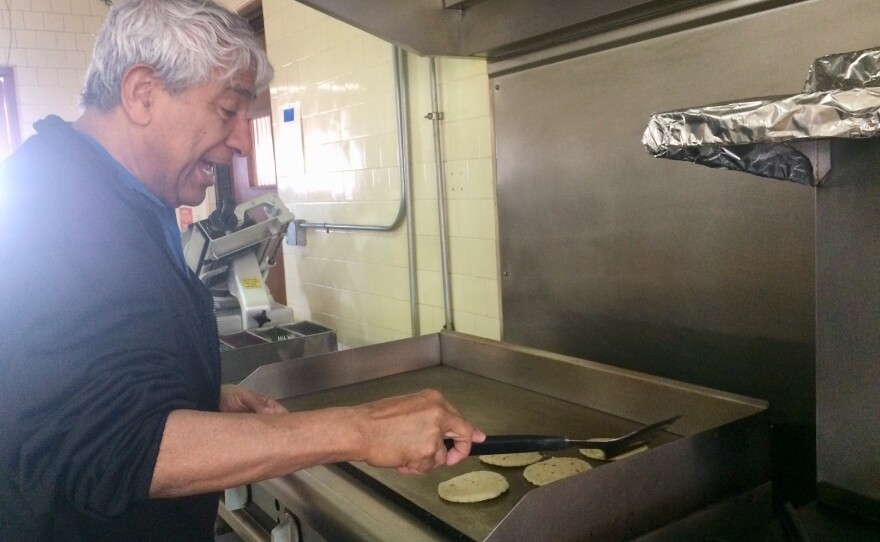A Colombian undocumented immigrant, living in the U.S. for 20 years has spent the last 10 months living with a Franciscan community in New Mexico. On this episode of Fronteras, we look at the difficulty of living under the persistent threat of deportation (0:00).
Then we explore immigration laws in the U.S. and how it evolves from administration to administration — from the detention of families to the denial of bail to certain detainees (12:33).

‘We Don’t Call It Sanctuary. We Call It Franciscan Hospitality.’
As the Trump administration cracks down on illegal immigration, people who’ve lived in the country for years without legal permission are at risk of deportation. Some of them are seeking shelter in religious congregations. U.S. Immigration and Customs Enforcement mostly stays away from so-called sensitive locations, like churches and other places of worship. So what is it actually like to live in limbo, inside a congregation?
For the past 10 months, Jorge Taborda has lived at Holy Cross Retreat Center in Mesilla Park, New Mexico. He’s there with his 16-year-old son, who’s a U.S. citizen, and another family also sheltering there. Taborda came to the center when his wife and older son were detained; his wife was eventually deported back to their native Colombia. Fronteras correspondent Mallory Falk brings us his story.


Evolution Of Immigration Law
The laws surrounding sanctuary and immigration have changed vastly from administration to administration. Undocumented immigrants have been living in fear and uncertainty because of fluctuating immigration laws.
MORE | Listen to the extended interview
Erica Schommer is an immigration attorney and clinical assistant professor at St. Mary’s University School of Law in San Antonio. Her experience providing legal assistance to immigrants living in the U.S. illegally goes back to working with Texas RioGrande Legal Aid, a nonprofit that provides free legal services to southwest Texas residents who can’t afford a lawyer.
Schommer practiced immigration law on the U.S.-Mexico border from 2003-2010. She has also worked on human rights issues in Mexico, Guatemala and Costa Rica.
Norma Martinez can be reached by email at norma@tpr.org and on Twitter @NormDog1.




